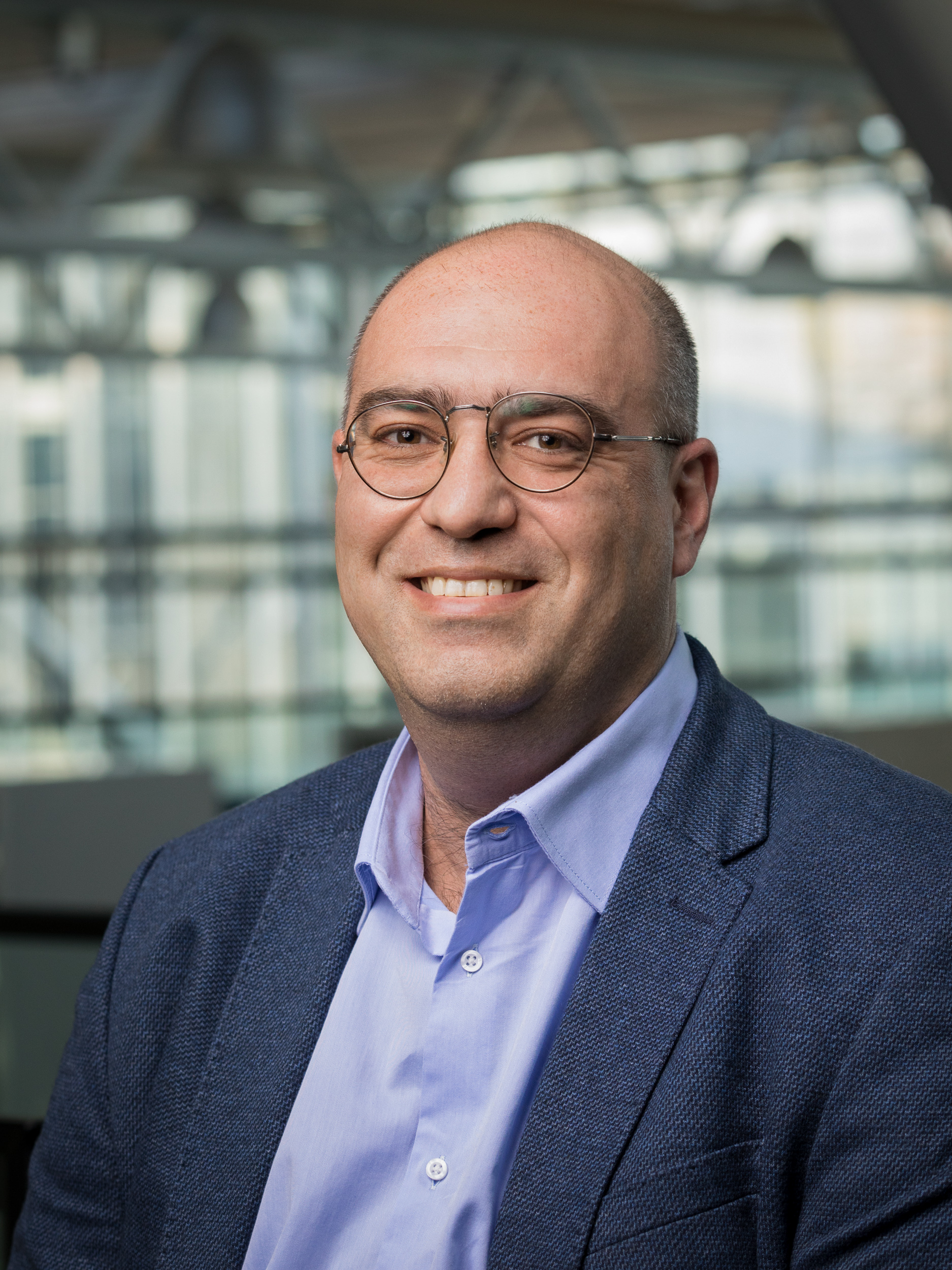Interview with ECCO's new Education Officer Gionata Fiorino
Alessandro Armuzzi, ECCO News Editor
 Alessandro Armuzzi Alessandro Armuzzi© ECCO |
Gionata, why did you decide to be a gastroenterologist, and then an IBDologist?
I decided to be a gastroenterologist and an IBDologist at the same time. It happened during my third year of medical school. During my pathology class, I loved to learn about mechanisms of inflammation, and I realised my favourite topic was intestinal inflammation. At the same time, I was sensitive to IBD, since I have got seven cases of IBD in my family; therefore I decided to start my career in this specific field.
When and why did you join ECCO and what were you expecting from the organisation at that time?
I became a member of ECCO in 2006, when I attended the ECCO Course in Amsterdam as a trainee in gastroenterology, as well as my first ECCO Congress. I thought that being part of a European society fully committed to IBD would be crucial in enabling me to improve my knowledge, to advance in research and to meet people who share my interest in IBD.
|
|
Gionata, is it true that you were one of the Y-ECCO Founders?
Yes, it is, but I did not do it alone; many brilliant friends and colleagues worked with me on that, with the support of smart ECCO Officers. When I joined ECCO, I was enthusiastic about becoming part of this family. On the other hand, my first thought was how to give something back to ECCO in return for what I was getting. During the ECCO Course, I met and interacted with young people from many countries in Europe, and I found that all of us had the same wish to continue that friendly interaction in our working life and in the long term. A few days after the course, I suggested to a group of my course mates (many of whom are now top IBD experts fully committed to ECCO) that we should propose a platform in ECCO to promote friendship and collaboration, educational programmes and scientific projects directed at and driven by young healthcare professionals interested in IBD. At the time, ECCO had no committees and no individual membership, so our proposal was a revolution, but it was well received and integrated into the structure of our organisation.
What does Y-ECCO represent for a young gastroenterologist?
Y-ECCO is the “nursery” of the ECCO Community. First of all, it allows young people to create personal relationships with other colleagues. Secondly, it provides the opportunity to exchange experiences with other people in different contexts. Thirdly, it offers an opportunity to participate in many ECCO Activities (education, scientific projects, consensus and guidelines) and to learn from the top experts in IBD. For any young healthcare professional interested in IBD,Y-ECCO represents the best opportunity for personal and professional development , and I strongly invite all my young colleagues to join and proactively participate in all Y-ECCO Activities.
Gionata, how many further experiences have you had within ECCO since completing your Y-ECCO commitments?
After I stepped down as Y-ECCO Chair, I spent some time building up my scientific and medical career; therefore I participated in ECCO Activities as a regular member, with no active involvement in ECCO Committees. However, I did participate in several ECCO Guidelines and Consensus during those years. In 2015, I joined the GuiCom soon after I completed a one-year course on GRADE methodology in Milan. That experience was very important in allowing me to turn into practice what I had learned as theory. By a lucky coincidence, I had the opportunity to lead the first GRADE-based ECCO Guidelines, which was an exciting challenge for me. I was also a member of the Steering Committee of the CONFER group, leading one project on rare pulmonary manifestations of IBD.
After leaving GuiCom, I joined the e-Learning Taskforce as one of the E-guide champions. Beside that, I proposed and led the first Consensus on Quality of Care Standards in IBD, and currently I am leading the E-QUALITY project to investigate the gap between ECCO Recommendations on quality of care and the real-world situation of IBD care.
You are now part of the ECCO Governing Board as Education Officer. What are your plans and activities in this role?
Being a member of the Governing Board is an honour for me, and I am proud to be the first Y-ECCO Officer to achieve this position. I gratefully thank all those people who have supported me during my ECCO life and who have helped me develop to be worthy of this position. This should be a reason to motivate my friends in Y-ECCO to learn, work hard and always be proactive in ECCO. Education is one of the main missions of our society. My focus is to follow up all the ECCO Educational Activities, from the ECCO Congress to the ECCO Workshops to the different activities driven by the committees. My task is to coordinate and harmonise education across the committees with the precious support of EduCom. In my vision, ECCO Educational Activities should be inclusive and open to the different needs of ECCO Members. While we should always offer top-level education for everybody, strategies may differ depending on whether they are directed at an IBD expert working in a referral centre or at a nurse or fellow working in a non-specialist gastroenterology unit who speaks very basic English and has no IBD mentors next to them. There are some barriers (i.e., funding for education, lack of time, language, different regulations across countries) that may prevent people from getting the best level of education in IBD. One of my tasks, together with the Governing Board and the committees, will be to remove those barriers as much as possible.
Last question: How do you foresee ECCO in the future?
I see a great future for ECCO. ECCO is now the reference organisation for IBD in the majority of countries across the world, extending far beyond the European borders. The number of members, the huge number of delegates attending the ECCO Congress each year from so many countries and the high number of people accessing the e-CCO Learning Platform confirm the key role played by ECCO for the IBD Community. ECCO Guidelines, Consensus and Topical Reviews are used as a guide in many countries even outside Europe. This is the reason why I see ECCO becoming a worldwide community which will be one of the main references for all IBD people across continents. This is a great challenge. If the organisation maintains the high quality of its activities as well as the spirit of friendship and proactive collaboration among its members, this challenge will be successfully met. Overall, the success of ECCO will finally be measured by the number of benefits that all its activities deliver for IBD patients worldwide. In my personal view, this is ECCO’s ultimate goal.



 Gionata Fiorino
Gionata Fiorino